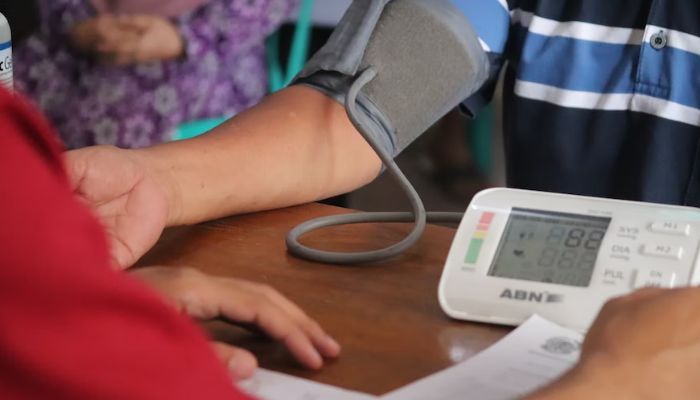Hypertension: Why do I have high blood pressure?
Typically, a normal blood pressure reading is considered to be around 120/80 mmHg
March 05, 2023

What is high blood pressure? When the force of your blood against the walls of your arteries is constantly too much, it results in high blood pressure, also known as hypertension, which is a common illness. The additional stress this condition places on your heart and blood vessels can result in major health issues like heart disease, stroke, and kidney disease.
Your heart's output of blood and your arteries' resistance to blood flow are the two primary determinants of your blood pressure. Systolic pressure (the number at the top) and diastolic pressure (the bottom number are the two numbers used to express blood pressure, which is normally measured in millimetres of mercury (mmHg).
Typically, a normal blood pressure reading is considered to be around 120/80 mmHg. If your blood pressure consistently measures above this range, you may have high blood pressure.
Causes of high blood pressure
There are several factors that can contribute to the development of high blood pressure. Some of the most common risk factors include age, genes, weight, physical activity, diet, and habits and lifestyle.
Age: The risk of developing high blood pressure increases as you get older.
Genetics: High blood pressure can run in the family.
Obesity: Being overweight or obese can put extra strain on the heart as well as the blood vessels, increasing your risk of high blood pressure.
Lack of physical activity: A sedentary lifestyle can increase the risk of high blood pressure.
Poor diet: Eating a diet that is high in saturated fat, salt, and cholesterol can increase your risk of high blood pressure.
Smoking: Smoking can damage the blood vessels and increase your risk of high blood pressure.
How is high blood pressure diagnosed?
Usually, high blood pressure is discovered during a standard physical examination. Your blood pressure will be measured by your doctor or nurse using a blood pressure cuff and stethoscope. Your healthcare practitioner could suggest additional testing if your blood pressure is continuously high in order to identify its underlying reason.
A 24-hour blood pressure monitoring test, which involves wearing a tiny device that measures your blood pressure day and night, may occasionally be advised by your healthcare professional.
Treatment for high blood pressure treated
If you are diagnosed with hypertension or high blood pressure, your doctor and dietitian will likely recommend lifestyle changes to help lower your blood pressure. These may include:
- Maintaining a healthy weight
- Eating a healthy diet that is low in salt, saturated fat, and cholesterol
- Getting regular exercise
- Quitting smoking
- Limiting alcohol consumption
If lifestyle changes alone are not enough to lower your blood pressure, your healthcare provider may also recommend medication to help manage your condition.









